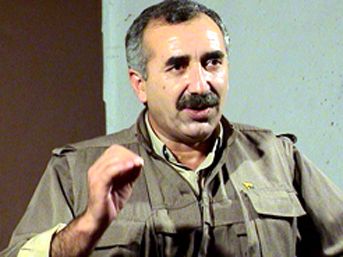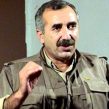
PKK Attacks Kill Soldiers and Damage the Kurdish Initiative
Publication: Eurasia Daily Monitor Volume: 6 Issue: 165
By:

As the ruling Justice and Development Party (AKP) government has been working on a comprehensive plan to resolve the Kurdish issue, the Kurdistan Workers’ Party (PKK) has broken its self-declared unilateral ceasefire and resumed its terrorist attacks. In two days, PKK attacks claimed ten Turkish soldiers’ lives, seven of them in Siirt, one in Hakkari and the other two in Van provinces.
Turkish public opinion is divided into two camps on whether to support the government’s Kurdish initiative. According to the A&G polling company 45.6 percent support the peace process while 48.4 are opposed. While an overwhelming majority in the Kurdish city of Diyarbakir support the government’s plan, (86.7) only 33 percent of Turks living in cities where Turkish nationalism is overwhelmingly dominant i.e., Trabozn and Manisa, are supportive (Aksam, August 25).
The Turkish press linked the PKK’s attacks with the Kurdish initiative. Similar headlines were used across the nationalist and liberal press. For instance, the nationalist daily HaberTurk preferred "bullets to the Kurdish initiative," while the liberal daily Taraf, which is one of the most prominent supporters of the Kurdish initiative, preferred to use "bloody intervention in the Kurdish initiative" (HaberTurk, Taraf, September 9).
Political observers are convinced that with its recent attacks the PKK will at least block the peace process (Vatan, September 10). "If the PKK does not want to lay down its arms and contribute to the peace process, the only option left is the Sri Lankan model, which suggests wiping out the whole organization and the leadership," Turkish intellectuals argue (Bugun, September 10).
The PKK issued a press statement claiming responsibility for the killings. In the statement, aimed at countering the growing criticism, the PKK stated that "despite the PKK’s unilateral ceasefire, the Turkish Armed Forces (TSK) has intensified its operations. In many occasions PKK militants have successfully avoided clashes, however, the recent clash in Siirt province took place because the TSK’s operations to eliminate our units forced the PKK militants to clash that resulted 7 deaths" (ANF News Agency, September 9). In the last few years the PKK has issued numerous similar statements blaming the TSK for armed clashes. However, this fails to address whether any state would stop its counter-terrorist operations when a terrorist organization actively maintains its units in the country.
In addition, just two days before the intensified clashes between the PKK and the TSK, Murat Karayilan, the acting leader of the PKK demanded that the Turkish government give the imprisoned leader of the PKK Abdullah Ocalan’s roadmap to the PKK. The roadmap was prepared by Ocalan and submitted to its lawyers at the end of August, but as part of prison procedure it was withheld by the prosecutor. Karayilan claimed that "hiding the roadmap will harm the political environment. Without the roadmap the process cannot go further. I should openly say that [hiding the roadmap from the PKK] would end the ceasefire. It is up to them to determine whether they will provide it" (ANF News Agency, September 7).
The recent PKK attacks, however, has sent shockwaves across the country, which might reduce public support for the peace process. Reacting to the news, Prime Minister Recep Tayyip Erdogan defined the attack as "sabotage to the democratization plan," and vowed not to back down from the Kurdish initiative. "I want to state as clearly as possible, that bullets fired at our security forces and our soldiers will not halt this democratization process, which is intended to create unity among our 72 million countrymen," he said (Today’s Zaman, September 10).
One of the leading figures in the AKP, Deputy Prime Minister Bulent Arinc, has also supported Erdogan’s stance by saying that, "we should not be emotional about the lost soldiers. In order to avoid further loses we will take risks and continue with our plan to resolve the Kurdish question" (www.cnnturk, September 9).
The two main opposition parties have harshly criticized the government’s initiative, claiming that the plan will not end the decades-long terrorist problem in Turkey. The deaths of soldiers at the hands of the PKK will only fuel the opposition’s claims and potentially stimulate public hostility against the initiative. Devlet Bahceli, the Chairman of the Nationalist Movement Party (MHP) replied to Erdogan’s "sabotage" argument by saying that the democratization process itself is "sabotaging the security forces’ determination, sacrifice, and belief in ending terrorism" (www.cnnturk, September 9). MHP’s Deputy Chairman Mehmet Sandir directly linked the recent deaths of the soldiers with the Kurdish initiative. Sandir said that the "recent martyrs will be remembered as ‘martyrs of the Kurdish initiative’" (ANKA, September 9).
The recent terrorist attacks certainly damaged the Kurdish initiative and will potentially reduce public support. It especially gave "evidence" to the opposition parties that vehemently oppose the plan, and might encourage them to further undermine the process. Perhaps the PKK itself is also looking for ways to end the Kurdish initiative. The overwhelming majority of Kurdish people want to end the clashes, which in turn applies pressures on the PKK. Nonetheless, the Kurdish initiative has created a political environment that may not necessarily serve the PKK’s interests.




